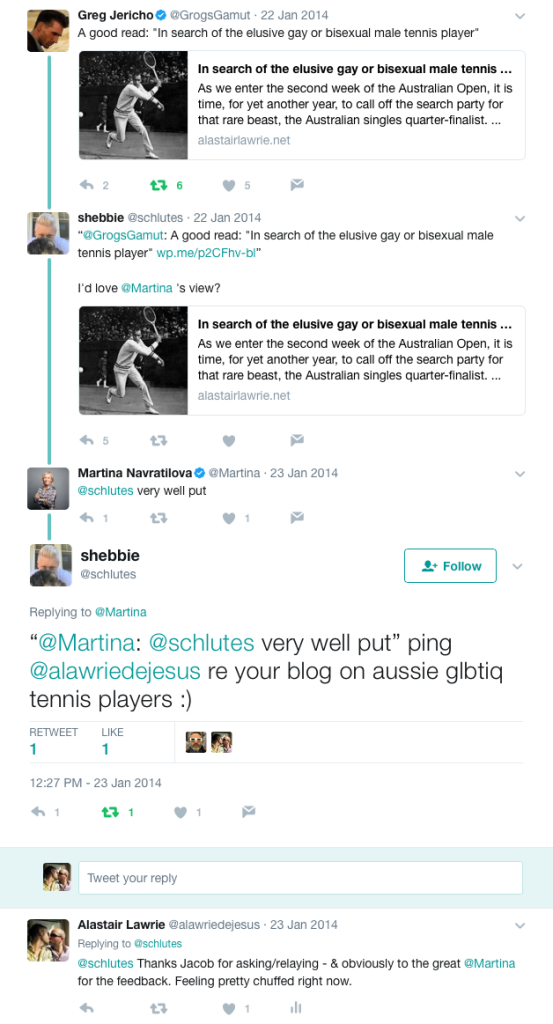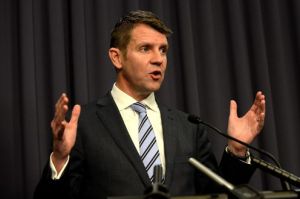There is a *lot* of news happening at the moment. In the midst of the COVID-19 pandemic, and now during COP26 – and with it humanity’s last best chance to address the existential threat of global heating – it can be difficult to keep track of other serious challenges to our human rights.
In Australia, one of those is the Morrison Liberal/National Government’s proposed Religious Discrimination Bill, which they remain committed to introducing into Commonwealth Parliament before the end of 2021.
While most people outside the Government still don’t know what form the final Bill will take (unlike a select few, like religious fundamentalists including the Australian Christian Lobby, with whom the Government has been negotiating – more on that later), we did learn something new last week:
Attorney-General Michaelia Cash is seeking to avoid the scrutiny of a Senate Inquiry into the Religious Discrimination Bill.
As reported in the Sydney Morning Herald last Sunday (24 October):
‘Attorney-General Michaelia Cash signalled the government would ramp up pressure on Labor to not hold a Senate inquiry because the government “has conducted two rounds of public consultation on draft legislation, and met face to face with over 90 stakeholders in a series of roundtables”.’
This position – Attorney-General Cash wanting to avoid the usual scrutiny of a Senate Inquiry – was then confirmed during Senate Estimates last Tuesday (26 October), via the following exchange with Greens Senator Janet Rice:
Senator Rice: … Given the far-reaching impacts of this proposed legislation, will you commit to having a full and thorough Senate inquiry into the bill once it’s introduced?
Senator Cash: That’s a decision for the Senate.
Senator Rice: Is the government committed and supportive?
Senator Cash: That is a decision for the Senate.
Senator Rice: It will be a decision for the Senate, but will the government be supporting having a Senate inquiry into this legislation?
Senator Cash: Again, that is a decision for the Senate.
Senator Rice: Will the government support that by helping to provide the numbers in the Senate?
Senator Cash: If the Senate determines that there should be an inquiry then there will be an inquiry.
Senator Rice: Do you think that there should be an inquiry?
Senator Cash: That is a decision for the Senate.
Senator Rice: Do you think that there should be an inquiry given it is your legislation?
Senator Cash: The normal process would be that a bill goes to an inquiry.
*****
Count them: that’s six separate opportunities for the Attorney-General to confirm the Government would support a Senate Inquiry into the Religious Discrimination Bill. And six refusals to do so.
The closest Cash came was stating it would be a ‘normal process’ to hold such an inquiry, not that the Government would agree to one.
Why does it matter?
This isn’t just a technical question of whether the Senate follows ‘normal process’ in holding an inquiry. Whether or not the Senate conducts an investigation into the Religious Discrimination Bill really matters, for two key reasons:
First, the Religious Discrimination Bill has the potential to affect the everyday lives of *all* Australians, religious and non-religious alike, including women, lesbian, gay, bisexual transgender and intersex (LGBTI) people, people with disability, divorced people and people in de facto relationships.
Everyone.
We know this because of the content of the first two Exposure Draft Bills, released in August and December 2019 respectively, with the most recent of those including the following features:
- Allowing health practitioners, including doctors, nurses, pharmacists and psychologists, to ‘conscientiously object’ to providing health services – even where this has disproportionate adverse impacts on particular groups (for example, refusing to provide puberty blockers, to the detriment of trans and gender diverse young people), and
- Allowing people to make offensive, humiliating, intimidating, insulting or ridiculing comments against women, LGBTI people, people with disability and even people of minority faiths, in all areas of public life, as long as those comments are motivated by religious belief.
Both the right to access health care, and the ability to go about your daily life – in workplaces, and schools and universities, and community services, and public transport, and other public spaces – without being subjected to vile comments on the basis of who you are, are at risk.
[For more detail on these and other serious problems with the Bill, see: The ‘Bad Faith’ Religious Discrimination Bill Must Be Blocked’.]
Legislation which carries such serious consequences deserves the highest level of scrutiny, and that must include a Senate Inquiry.
Second, the Religious Discrimination Bill has the potential to be the biggest change to Commonwealth anti-discrimination law for almost four decades.
Since the passage of the Racial Discrimination Act in 1975, and Sex Discrimination Act in 1984, the basic framework of Commonwealth anti-discrimination laws has remained relatively consistent.
This includes the general tests for what constitutes direct and indirect discrimination, and in what circumstances religious organisations are permitted to discriminate. It also includes the ‘complementary’ structure of Commonwealth, state and territory anti-discrimination laws, where they operate alongside each other, without seeking to override the other.
The Disability Discrimination Act 1992, Age Discrimination Act 2004, and even the addition of sexual orientation, gender identity and intersex status as protected attributes in the Sex Discrimination Act in 2013, did not fundamentally alter these arrangements.
However, the Second Exposure Draft Religious Discrimination Bill marks a radical departure from these precedents.
For example, the ability to make offensive, humiliating, intimidating, insulting or ridiculing ‘statements of belief’ is included in a provision (clause 42) which limits the operation of all other anti-discrimination legislation: Commonwealth (including the Fair Work Act 2009), and state and territory (singling out the Tasmanian Anti-Discrimination Act 1998 in particular).
In practice, this would be the first time the Commonwealth Government directly sought to override the anti-discrimination laws of other Australian Governments.
The ‘conscientious objection’ provision (in clause 8) discussed earlier also involves a significant departure from standard practice. That is because it seeks to amend how the test for indirect discrimination operates, in favour of health practitioners who wish to discriminate in the types of services they provide.
One of the Religious Discrimination Bill’s other, more-infamous provisions – the so-called ‘Folau clause’ (also in clause 8) – is similarly-designed, altering the test for indirect discrimination to ‘stack the decks’ in favour of employees who make otherwise discriminatory statements outside core business hours.
Meanwhile, its proposed ‘religious exceptions’ (in clause 11, and scattered elsewhere throughout the Bill) dramatically re-write the existing scope of these special privileges. Not only do they apply to an expanded range of organisations, but the two different tests for whether a ‘religious exception’ applies are *both* far easier for organisations to use than the tests in the Sex Discrimination Act (section 37) and Age Discrimination Act (section 35).
Legislation which seeks to override state and territory anti-discrimination laws for the first time, and which significantly departs from existing practice in the test for indirect discrimination and significantly expands the scope and test for religious exceptions, deserves the highest level of scrutiny. That must include a Senate Inquiry.
What is the Government’s excuse?
Attorney-General Cash did not attempt to either clarify, or justify, the Government’s opposition to sending the Religious Discrimination Bill to an inquiry in her exchange with Senator Rice.
Which means we are left with her quote in the Sydney Morning Herald, namely that she does not support an inquiry: because the government “has conducted two rounds of public consultation on draft legislation, and met face to face with over 90 stakeholders in a series of roundtables”.
This rationale does not withstand the application of even the slightest skerrick of scrutiny.
Yes, the Government released two Exposure Draft Bills, which were open for public submissions. And yes, both the Bills, and associated submissions, have been published (see the Attorney-General’s Department website for the First Exposure Draft Bills here, and for the Second Exposure Draft Bills here.)
However, unlike a Senate Inquiry, there is little transparency about these processes:
- There is no report document summarising feedback from either process
- There is no public list of attendees at the roundtables mentioned by Senator Cash, and
- There is no transcript of the evidence provided by these witnesses to the Government.
Also, unlike a Senate Inquiry, there was a lack of independence to these processes:
- They were conducted by the Attorney-General’s Department, acting on the instructions of their Minister
- Attendees of the roundtables were presumably selected by, or with the close involvement of, the Attorney-General, and
- There was no opportunity for Opposition, Greens and cross-bench Senators to interrogate the evidence being provided to the Government.
In short, Government-run consultation processes are no substitute for the independence and transparency of a Senate Inquiry.
But there is an even bigger problem with Attorney-General Cash’s attempted justification for not supporting a Senate Inquiry into the Religious Discrimination Bill – and that is the First and Second Exposure Draft Bills were released in August and December 2019 respectively. That is more than, and just under, two full years ago.
Indeed, submissions in response to the Second Exposure Draft Bill closed in January 2020, less than a week after the first case of novel coronavirus was detected in Australia. A *lot* has changed in the intervening 21 months, including the Attorney-General (with Michaelia Cash replacing former Attorney-General Christian Porter in March 2021).
It is highly likely some aspects of the Religious Discrimination Bill will have changed in that period too – perhaps for the better, maybe for the worse.
Most members of the Australian community, and the community groups which represent them, will not be aware of those changes until the final Bill is introduced to Parliament. They deserve the opportunity to comment on the Bill’s final provisions, not past versions that have potentially been superseded.
Of course, some groups *are* aware, and have been closely involved in negotiations about the Bill’s contents for the past two years. This includes religious fundamentalists, such as the Australian Christian Lobby (ACL).
Indeed, the same Sydney Morning Herald article in which Cash argued against a Senate Inquiry was primarily about the ACL revealing the final Religious Discrimination Bill will include some version of the ‘Folau clause’.
The article is titled ‘Christian Lobby boasts religious freedom laws will include ‘Folau clause’, and goes on to quote ACL boss Martyn Iles:
‘Mr Iles said the ACL was “very, very strongly applying pressure from a grassroots level and from our lobbying level to ensure the Folau clause remains in the bill. It was fought tooth and nail, it was really at risk for a long time there[. O]ne great win is that the final draft of the bill will contain a Folau clause. It’s not perfect, but it’s not bad. And it does exist within the bill.”’
The Government’s consultations with the ACL were not denied by Attorney-General Cash, once again at Senate Estimates:
Senator Rice: Minister, we’ve seen media reports – and I’m tabling the media report that I was reading last week, that the Australian Christian Lobby say that they’re in the final days of negotiations with the Prime Minister’s office over the bill. The ACL are claiming they are ‘part of a coalition of faith leaders who jointly have been negotiating very closely with the Attorney-General, and with the Prime Minister’s Office’. Is that an accurate summation of what’s been happening with the negotiations on the bill?
Senator Cash: I’ve been negotiating far and wide in relation to the bill.
Senator Rice: Who else have you been negotiating with over the last month, for example?
Senator Cash: I’ve been negotiating with stakeholders across the board. I would take on notice whether or not they want their names provided, though, with all due respect to them. Some actually don’t want their name provided formally.
Senator Rice: Could I take on notice a list of all the stakeholders, as far as they are willing to be named?
Senator Cash: I’m more than happy to do that, absolutely. I need to go to them to get their permission, but-
Senator Rice: Can you name some others, other than those that will be part of this coalition of faith leaders?
Senator Cash: I would prefer not to, in the event they don’t want their names publicly disclosed as having discussions with me, but I’m more than happy to take it on notice for you.
Senator Rice: Have you been negotiating with any of the human rights organisations or LGBTIQ+ organisations?
Senator Cash: Yes. They’re a very important stakeholder.
*****
This exchange is deeply unsatisfactory, for a number of reasons.
The Attorney-General was unwilling to divulge the name of *any* stakeholder with whom she had been negotiating, or even consulting, over the biggest change to Commonwealth anti-discrimination law in almost four decades.
Even though Cash eventually agreed to take this question on notice (meaning she will need to respond in writing in coming months), this will unlikely be revealed until after the Bill itself has been introduced, and even then stakeholders who wish to remain secret will apparently have their names withheld from the public.
Cash’s answers also do not reveal the level of engagement with each group. For example, it is possible for the Government to be ‘negotiating’ with religious fundamentalists about the text of the Bill, but only ‘consulting’ with other groups in high-level or non-specific terms.
The final answer is also worrying; Cash uses the singular form (‘They’re a very important stakeholder’) in response to a question about negotiating with ‘human rights organisations or LGBTIQ+ organisations’.
This could imply she may only be meeting with one such body, and it is unclear who that would be, especially when there is no generalist national LGBTIQ+ organisation that is accountable to the LGBTIQ+ community (LGBTIQ+ Health Australia is the closest there is although, as the name suggests, its primary focus is health).
In fact, there are a wide range of organisations that either represent particular sections of the community (like Intersex Human Rights Australia), or advocate on LGBTIQ+ issues generally (such as Just.Equal Australia and Equality Australia), as well as several state and territory membership-based LGBTIQ organisations. Senator Cash should be ‘negotiating’ with all of them.
All of this is to say that the broader community has almost no idea who has been meeting with Attorney-General Cash about the Religious Discrimination Bill, or how much access and influence each organisation has been able to achieve. Based on her evidence to Senate Estimates last week, it is possible we will never be permitted to know.
Which simply confirms that the *only* way there can be a truly independent, and transparent, consultation process – where the names of witnesses are published, hearings are held in public with everyone able to know who has been advocating for what, as well as an opportunity for all Parties to interrogate those views – is for there to be a Senate Inquiry.
What is Labor’s position?
It remains unclear what Labor’s position is on whether there should be a Senate Inquiry into the Religious Discrimination Bill.
Shadow Attorney-General Mark Dreyfus is quoted in the same Sydney Morning Herald article as Senator Cash, although he does not address this issue (to be fair, he may not have been asked about it, or he may have provided quotes on this topic that were not included).
Of more concern is the lack of public position on this by Labor in the period since then. I am not aware of any criticism from ALP MPs or Senators about Cash’s push to avoid the scrutiny of a Senate Inquiry, nor did any Labor Senators on the Estimates Committee alongside Senator Janet Rice join her in challenging this position.
It is possible the Labor Opposition will push for a Senate Inquiry when the final parliamentary sitting fortnight of the year starts on Monday 22 November (which is presumably when the Government will introduce the Religious Discrimination Bill).
However, it is also possible that the ALP, under Leader Anthony Albanese, does not support referral to a Senate Inquiry. If so, their rationale for doing so would be just as weak as Attorney-General Cash’s.
In the Opposition’s case, they may seek to avoid any criticism they are ‘holding up’ so-called ‘religious freedom’ laws in the lead-up to the federal election, due in the first half of 2022 (even though it is the Morrison Government’s own delays that have led to this timing).
But that cannot be justification for not closely scrutinising the biggest change to Commonwealth anti-discrimination laws in nearly four decades. Nor would it excuse failing to support at least an inquiry into legislation that is a serious threat to the rights of women, LGBTI people, people with disability, divorced people and people in de facto relationships, even people of minority faiths.
If Labor fails to support a Senate Inquiry into the Religious Discrimination Bill in an attempt to avoid being politically ‘wedged’, then it seems highly likely they would subsequently also just ‘wave through’ the Government’s legislation.
That course of events would be reminiscent of the Labor Opposition’s actions under then-Leader (and now One Nation NSW Leader) Mark Latham in supporting John Howard’s Bill banning same-sex marriage in 2004. A ban which took a long and painful 13 years to overturn.
If Albo does not support a Senate Inquiry into the Religious Discrimination Bill, and instead simply votes for the legislation, it would be the biggest display of Labor spinelessness on LGBTI rights since Latham revealed himself to be an invertebrate on marriage equality.
Why there MUST be a Senate Inquiry into the Religious Discrimination Bill
I know that, for some of you, whether or not there is a Senate Inquiry on the Religious Discrimination Bill might seem like a fairly technical discussion.
I hope I’ve convinced you that’s not the case, and shown why holding a Senate Inquiry is essential to independently and transparently scrutinise the biggest change to Commonwealth anti-discrimination law in 37 years.
And why we need this investigation to shine a light on any proposals that undermine the rights of women, LGBTI people, people with disability, divorced people and people in de facto relationships, and even people of minority faiths.
Of course, a Senate Inquiry is no guarantee this harmful legislation (if that’s what it turns out to be, because most of us have yet to see the final version) is ultimately defeated, or that its worst aspects are amended or at least ameliorated. It may still end up being passed.
But it would be a terrible sign if the Government is successful in avoiding a Senate Inquiry.
Perhaps think of it like this: if the Government was proud of this Bill and its key features, if it thought it could stand up to the rigour of independent and transparent consideration by a multi-partisan Committee, then it would gladly agree to it.
That Attorney-General Cash has publicly argued against doing so, suggests the final Religious Discrimination Bill will be a fundamentally bad law.
Instead, it seems they hope to ram it through Parliament, either late this year, or early next year, while everyone is distracted by other news: COVID-19, COP26 and global heating, the impending election campaign itself, and plenty more besides.
If they are successful, then the first time some people are aware it has even happened will be when they are refused a vital health care service. At their doctor. Or by their nurse. Or pharmacist. Or psychologist.
Or when they are subjected to vile comments about who they are. In their workplace. Or at their school or university. Or at another community service. Or on public transport.
Or any other public space in which making offensive, humiliating, intimidating, insulting or ridiculing comments about other people has been permitted as long as it’s motived by religious belief.








